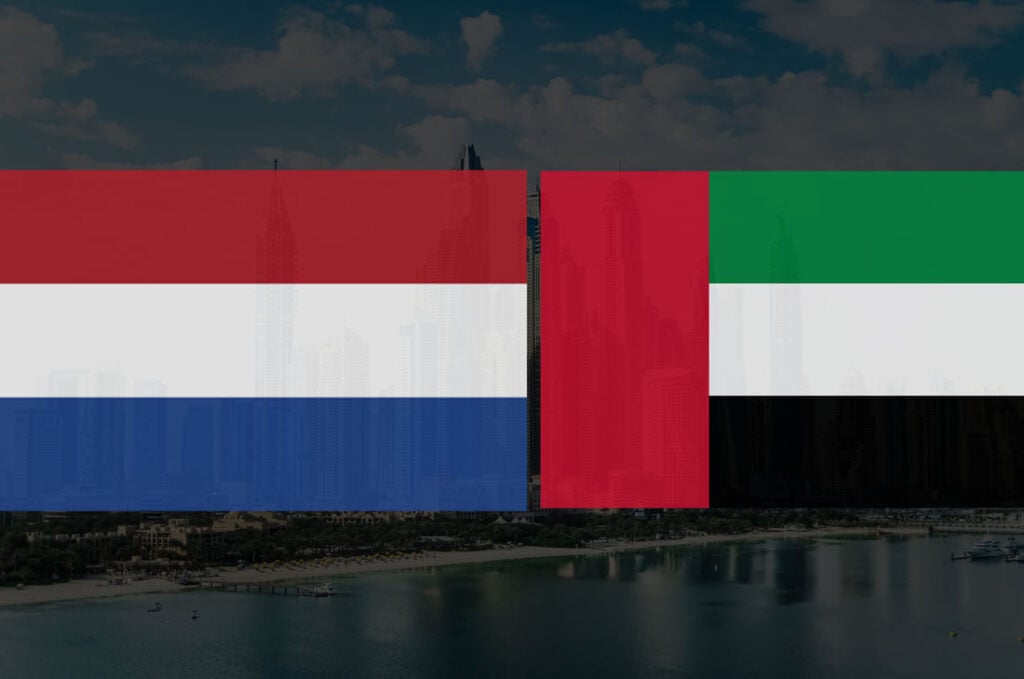

Since 2010, the Global Law Experts annual awards have been celebrating excellence, innovation and performance across the legal communities from around the world.
posted 7 hours ago
For Dutch entrepreneurs starting a business in Dubai, the process itself is straightforward: decide what you’ll trade in, pick your structure, choose between a mainland or free zone jurisdiction, register your company name, apply for your trade license, complete the visa process, and open a corporate bank account.
Dubai has become a natural extension of the Netherlands’ outward-looking economy. The UAE and the Netherlands already enjoy strong commercial ties, with bilateral trade surpassing USD 4.3 billion. Dutch companies – from Rotterdam’s logistics houses to Eindhoven’s clean-tech innovators – are using Dubai as their base to reach markets in Africa, Asia, and the wider Gulf.
This guide unpacks how Dutch business owners can make that leap – from understanding the legal landscape and costs to securing family visas and working with experts such as Knightsbridge Group.
Why Dutch entrepreneurs choose Dubai
If there’s one trait the Dutch and Emiratis share, it’s ambition. Both nations are defined by their global outlook, their talent for trade, and their comfort operating at scale.
Dutch entrepreneurs in tech, agriculture, and sustainability will feel right at home. Dubai’s free zones – such as DMCC, Dubai Internet City, and Dubai Science Park – are buzzing with startups and venture-backed scale-ups.
Few cities combine business dynamism with everyday comfort like Dubai. It’s clean, safe, and cosmopolitan. For Dutch families used to structure and order, the city’s quality of life – world-class healthcare, education, and infrastructure – makes relocation a smooth experience.
Dubai’s geography gives it an unmatched advantage: sitting at the crossroads of Europe, Africa, and Asia, it’s an instant hub for global logistics and re-export. Dutch companies involved in shipping, engineering, or renewable energy can use it as a launchpad to reach fast-growing markets.
The UAE offers zero personal income tax and a competitive corporate tax rate. For business owners from the Netherlands – where taxes are famously high – Dubai’s model feels liberating. It means more capital can be reinvested into innovation and expansion.
Legal requirements for Dutch entrepreneurs in Dubai
To run a business legally in Dubai, Dutch citizens must first incorporate a company and obtain a residence visa.
Once your trade license is issued, you’re eligible for a UAE residence visa – normally valid for two or three years and is renewable. This also lets you sponsor family members and employees, providing a long-term base to live and operate.
There are two main routes:
Free zones: These allow 100% foreign ownership, fast registration, and exemptions from import or export duties. They’re ideal for international firms focused on consulting, trading, or digital services.
Mainland setups: Perfect for those who want to trade directly inside the UAE or work with government entities. Thanks to reforms introduced in 2021, Dutch entrepreneurs can now own 100% of most mainland businesses – no Emirati partner required.
Both frameworks are transparent and well-regulated, which is why Dubai continues to attract investors from the Netherlands and across Europe.
Steps to start a business in Dubai as a Dutch entrepreneur
The setup process is structured: select your business activity and legal structure, choose a jurisdiction, register your trade name, apply for a trade license, complete your visa process, and open a corporate bank account.
Step 1: Choose your activity and structure
Start by determining exactly what your company will do. Dubai’s authorities recognise over 2,000 different business activities – everything from food imports to fintech, design, and consultancy.
A Dutch architecture firm might apply for a professional license, while a horticulture exporter would register a commercial license. Choosing correctly shapes the paperwork, license type, and which authority you’ll deal with later.
Step 2: Pick your jurisdiction — mainland or free zone
Next comes the big choice.
Free zones: Ideal for firms with an international focus. They provide 100% ownership, minimal bureaucracy, and lower setup costs.
Mainland: Suited to those who want to work with UAE-based clients or government projects. With ownership reforms, mainland businesses now enjoy the same autonomy as free zone companies.
If you picture your clients mostly outside the UAE, a free zone setup might suit you better. If you plan to build a domestic presence, go mainland.
Step 3: Register your name and apply for a trade license
Now, register your company name – it must be unique and follow Dubai’s naming rules. Once approved, submit your trade license application to the Department of Economy and Tourism (DET) or your chosen free zone. Typical documents include passport copies and incorporation forms. When your license is issued, you can legally start trading.
Step 4: Complete the visa process
With your business license in place, you can apply for your residence visa. The process includes a short medical check, Emirates ID registration, and visa stamping. Most visas last two or three years and can be renewed. Holding one also lets you sponsor your spouse, children, or parents.
Step 5: Open a corporate bank account
The final step is opening a business bank account. Banks will ask for your license, shareholder details, proof of address, and sometimes a business plan. The process can take anywhere from a few days to a few weeks, depending on the bank and the nature of your business.
Once your account is open, you’re officially operational.
Costs involved for Dutch entrepreneurs
The cost of starting a business in Dubai varies by setup type and industry, but Dutch entrepreneurs generally budget between AED 10,000 and AED 20,000 for the first year.
Here’s a rough outline:
Trade license fees: AED 10,000 to AED 20,000 per year.
Visas and Emirates ID: AED 3,000 to AED 7,000 per person.
Office space: Flexi-desks in free zones from AED 10,000; private offices on the mainland can exceed AED 50,000.
Although Dubai’s startup costs are comparable to those in Europe, the tax advantages and market reach quickly offset the initial expense.
Family visas for Dutch entrepreneurs
Once you hold your residence visa, you can apply to sponsor family members. This includes your spouse, children, and occasionally parents. You’ll need proof of accommodation and a monthly income of roughly AED 4,000 to AED 10,000.
For Dutch families, the adjustment is smooth. Dubai offers international schools, reliable healthcare, and a thriving European expat community. It’s not uncommon to meet Dutch families in Arabian Ranches, Jumeirah, or Dubai Hills – finding the same balance between work and lifestyle they enjoyed back home.
Why work with Knightsbridge Group
Starting a business in a new country comes with plenty of details – paperwork, approvals, and timelines. That’s where Knightsbridge Group steps in.
Our specialists have guided countless European entrepreneurs, including many from the Netherlands, through every stage of Dubai company formation.
We provide:
Clear advice on whether a free zone or mainland setup fits your strategy.
Trade license registration and government liaison.
Visa and residency management for founders and families.
Introductions to trusted UAE banks.
Ongoing compliance and tax guidance.
Our team’s value lies in making the process seamless – translating Dubai’s regulations into practical steps so your launch stays on schedule.
If you’re a Dutch entrepreneur ready to expand beyond Europe, connect with Knightsbridge Group today. We’ll handle the setup so you can focus on what matters: building your business in one of the world’s most dynamic markets.
Author


No results available
posted 8 hours ago
posted 10 hours ago
posted 10 hours ago
posted 10 hours ago
posted 10 hours ago
posted 11 hours ago
posted 2 days ago
posted 2 days ago
posted 2 days ago
No results available
Find the right Legal Expert for your business
Global Law Experts is dedicated to providing exceptional legal services to clients around the world. With a vast network of highly skilled and experienced lawyers, we are committed to delivering innovative and tailored solutions to meet the diverse needs of our clients in various jurisdictions.

Send welcome message